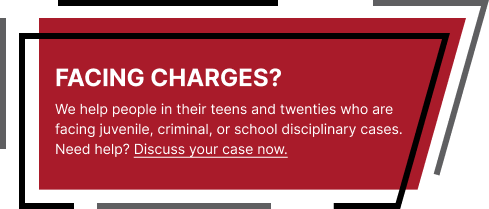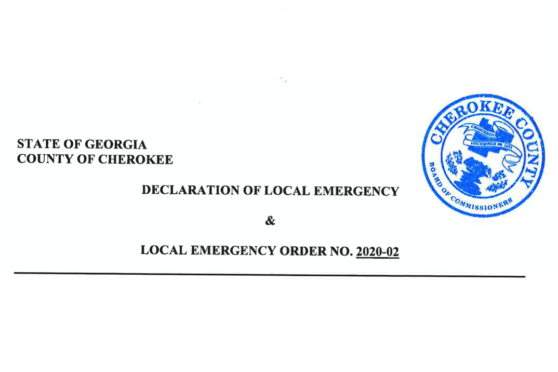
Cherokee County has issued a Local Emergency Order in response to the impacts of COVID-19. Many of the cities also enter their own orders, so everyone should be aware that the order we are discussing applies to unincorporated areas of Cherokee County.

The order went in to effect March 26, 2020, and continues until April 9, 2020, unless the extend it or end it early. The order explains that its intention is to “ensure that the maximum number of people self-isolate in their places of residence to the maximum extent feasible, while enabling essential services to continue to slow the spread of COVID-19 to the maximum extent possible.”
As it is relevant to most people, the Order addresses:
The Order also provides a maximum penalty of a $1,000 Fine and up to 60 Days in jail per violation of the Order.
After outlining what is contained in the Order, I’ll also provide my take on it.
Basically, the Order outlines that all public and private gathers of 10 people or more, where those people are within 6 feet of each other are prohibited. This includes meetings that are indoors or outdoors, in a confined or enclosed enclosed space. It should be noted that they include auditoriums, stadiums (indoor or outdoor), tents, arenas, event centers, music venues, meeting halls, conference centers, and large cafeterias as examples of of prohibited locations.
The Order does exclude from the definition fo a community gathering, the following list (or similar uses), so long as the people generally not generally within 6 feet of each other for extended periods of time:
All eating establishments, including restaurants, food courts, brewpubs, and breweries, are not allowed to offer dine-in or outdoor and patio service. They can only offer delivery, takeout, or drive-thru services. This prohibition does not include cafeterias or on-site dining in hospitals, nursing homes, and assisted living facilities as long as they are following all state and federal public health guidelines.
The following businesses are ordered to be closed:
With that said, any services performed by (or under the supervision of) a licensed medical doctor, nurse, dentist, physical therapist, chiropractor, or other healthcare professional does not fall within the body care services outlined above.
All businesses that remain open for use by the public must take steps to restrict in person contact and maintain a distance of 6 feet between individuals.
There are a number of provisions in the Order that state that businesses and employers “are encouraged” to take specific action. These encouraged actions actions are to:
This portion of the Order basically reinforces the Governor’s Executive Order from March 23, 2020, which directs individuals who:
to isolate, quarantine, or shelter in place within their homes or place of residence and comply with applicable orders.
It also orders individuals to quarantine at home or at another suitable place for a minimum of 14 days or until cleared by a medical professional if they:
This provision is requires all individuals and families to “shelter at home to the maximum extent possibly, going out only:
This paragraph appears have the most broad provisions, which I’ll address more below.
The Order itself includes some very specific prohibitions for certain categories of businesses and people. However, for the average person who does not fall in to the more at risk categories, it provides some broad language to shelter at home “to the maximum extent possible” and allows people to go out for the listed purposes and “other necessary purposes.” This has led to a lot of questions about “what is necessary?”
Two considerations should come to mind when evaluating this:
We know the intent to be to “ensure that the maximum number of people self-isolate in their places of residence to the maximum extent feasible, while enabling essential services to continue to slow the spread of COVID-19 to the maximum extent possible.”
From a legal perspective, a broad statement like that is judged by a “reasonable person” standard, which means: Would a reasonable person believe that the purpose of leaving the home is necessary? Just understand that the “reasonable person” would first be the law enforcement officer citing you and later a judge.
The two questions that I would ask myself when considering an activity is:
My personal take on the penalties available in the Order is that they are more likely intended to be directed at businesses who do not comply or to those who are violating the prohibited community gatherings. While they do apply, and can be enforced, I do not think they are meant to confine people to their home with no ability to go outside or live their lives, so long as they are maintaining social distancing.
With all of that said, I have to give my lawyer caveat of: Leave your house at your own risk, if you are not complying with the provisions of this Order.
Ghanouni Teen & Young Adult Defense Firm
 N/a
N/a